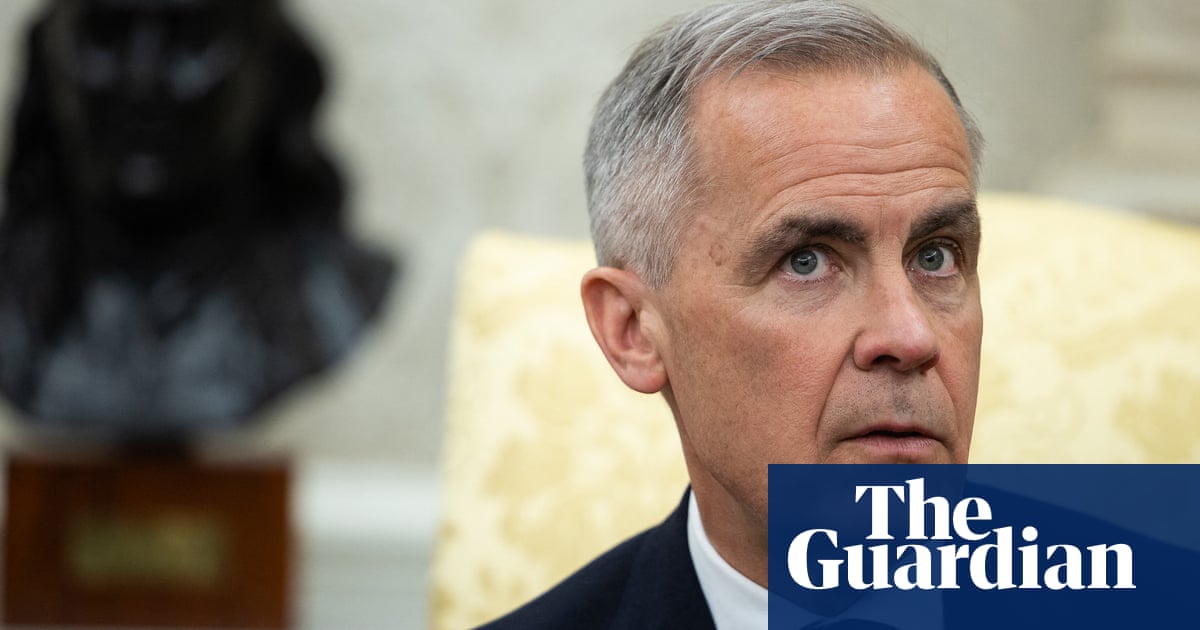Donald Trump’s “liberation day” – his plan to overturn decades of US free trade policy – was getting a mixed reaction in New York on Tuesday.
With Trump planning to unleash tariffs on global trading partners on Wednesday, many said the price rises economists are predicting would make no difference because they were already out of reach of pinched pocketbooks. Others said they would accept short-term price hikes for longer-term US economic well-being.
Still, more said they doubted that Trump had any better idea of how tariffs would affect the lives of ordinary Americans. And after a blistering first 70 days in office, some said they had begun to tune out of the stop-start tariff conversation and commentary about what tariffs might mean for their daily lives.
Outside Macy’s in midtown Manhattan, a couple agreed on their feelings that Trump had misled voters when he vowed during the campaign to make everything cheaper. “Tariffs will affect people across the country,” said the shopper, who offered his name as Tom. “I believe we were lied to,” he said, predicting that Republican voters in red states would soon come to agree. “I think some have changed their views already, and more will continue to do…” he added.
Trump’s tariffs threaten to unleash a global trade war – and raise prices for everyone around the world. Some visitors were shocked at how expensive New York already was.
A couple from the Netherlands said they had just paid $18 for two ice creams. “New York is already very expensive,” said one, Patrick. “Two ice creams would be like six dollars in the Netherlands.”
A couple visiting from Indiana, who declined to give their names, revealed split thinking on the issue. “I really don’t understand the tariffs so I’m just waiting to see,” said the woman.
But her husband offered a different view. Prices, he said, “are going to go up first and then come down. I work in the steel industry so in the long run it’s going to benefit me, out family, so that means taking care of us.”
A woman who said she shopped online at cut-price Chinese retailers Temu and Shein, indicated that she did not entirely buy into Treasury Secretary Scott Bessent’s recent comment that the American dream is about more “access to cheap goods”.
She said that she would live with fewer purchases because “we have no choice” but she was silent on the question of if she already had enough stuff. “Clearly not,” her friend chipped in.
Others seemed nonplussed. Stace Belgrave, 24, from London, said she couldn’t say she wasn’t fazed by a higher cost of living. “I’m conscious, but I’m just living my life,” she said, strolling through Times Square.
Fergus Owens, also from London, said higher prices as a result of tariffs were for the moment hypothetical. “I suppose when I start to see the impact of it I’ll have a stronger opinion. But things are already way too expensive so that’s where we are. There’s nothing I can do about it,” he said.
But a perhaps surprising number of visitors to the area expressed views that conform to polls that show Trump may be focusing too much on tariffs and not enough on lowering prices and fulfilling his campaign promise of making them better off.
“Everyone is already angry about prices, and everyone in New York City is Democrat, so they’re not going to get any angrier than they already are,” said Sarah Razack, 15, who spoke to the Guardian with her mother’s permission. She predicted consumers in Trump’s base in the southern states might soon feel angry too.
But for three Long Island elevator repair workers taking in the spring sunshine on a lunch break, Trump’s plan to raise tariffs had their support. They saw it as a classic Trump bargaining positioning with international trading partners.
“If they see how much they’re getting charged, maybe they will lower theirs and we can lower ours again,” reasoned one, who offered his name as Sullivan. The family grocery bills, he said, “were already as high they can get. But maybe later this year or next, they will go down to where it was before Biden. So we’ll accept it.”

 1 month ago
27
1 month ago
27

















































